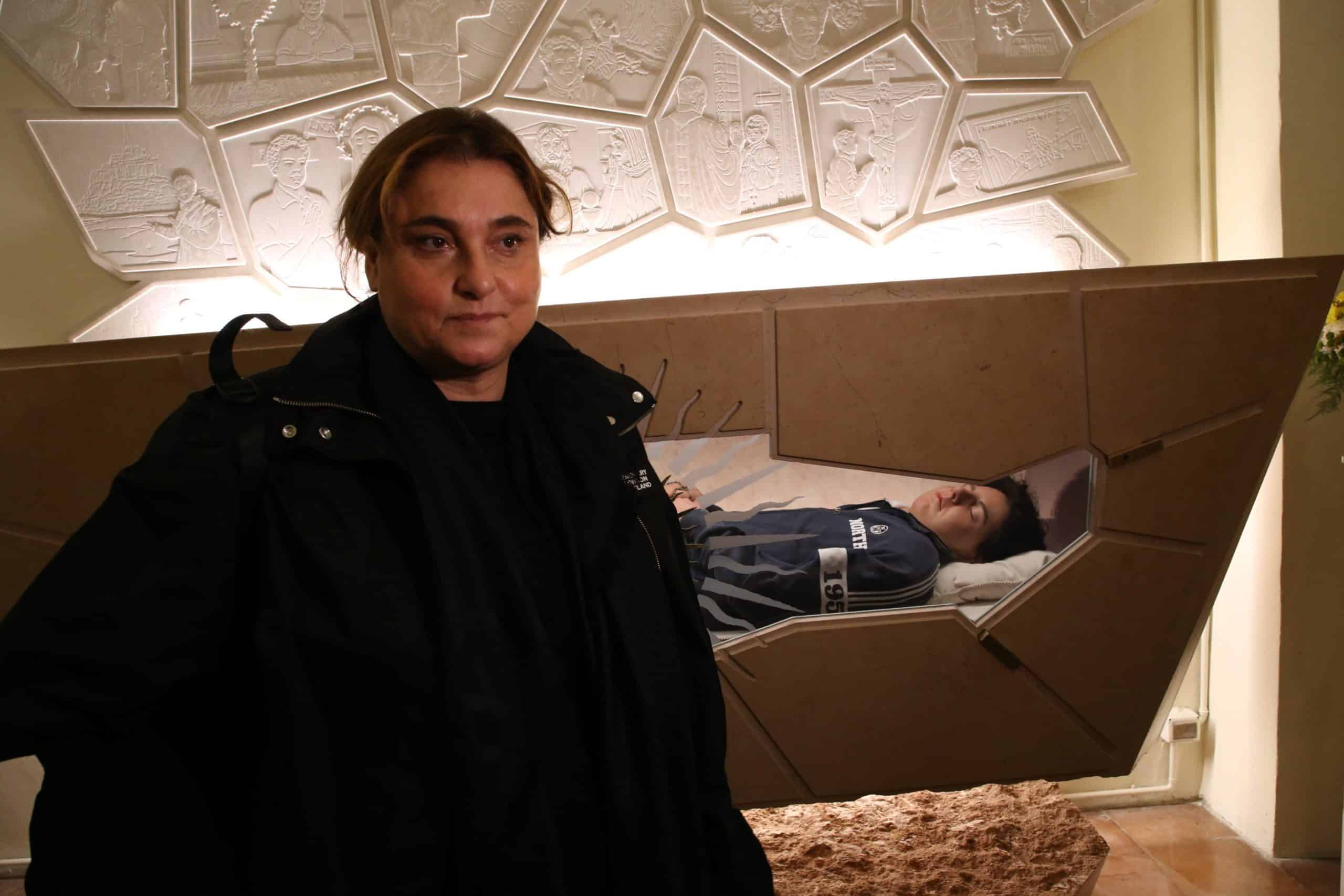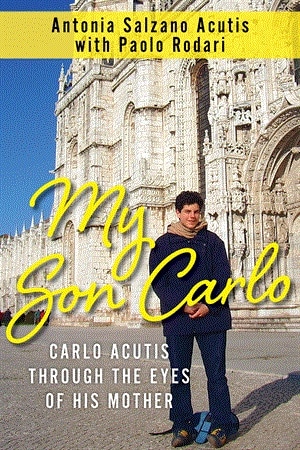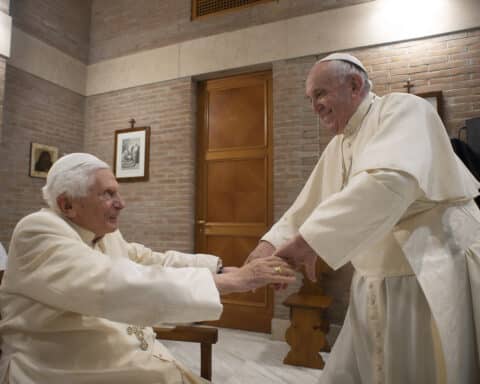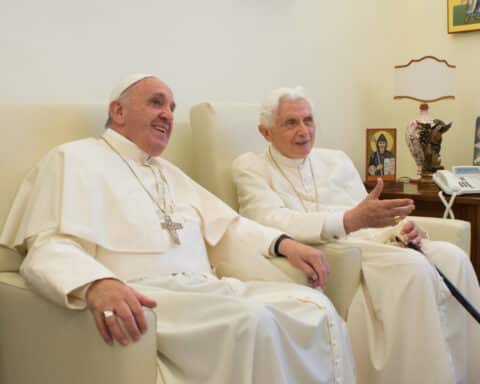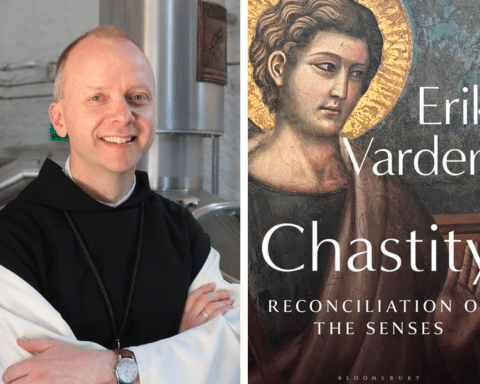Did she ever dream of being a writer?
Antonia Acutis chuckles at the question.
The answer is a decided no. Authorship was never a goal for her, but you would never know it from reading her book. Antonia has a way with words, and whether you are reading them on the page or listening to her speak, she draws you in with a combination of frankness and humility that is inherent to who she is. There is a passion evident in her voice, one that indicates certainty and surety. This is a woman who knows in the very depth of her being that God is good, that he does move, and that his will is always for our well-being.
And underneath it all is joy. I was moved by her honesty and her openness, but it was her laughter that surprised me most in our hourlong conversation.
This is perhaps unexpected from a woman who lost her only son to cancer at just 15 years old, but Antonia doesn’t see it that way. She holds tightly to the words of Job: “The Lord has given, and the Lord has taken away. Blessed be the Name of the Lord.”
Her new book, “My Son Carlo: Carlo Acutis Through the Eyes of His Mother” (OSV, $27.95), is clearly the product of love and hard work, infused with the gifts and talents of teaching and evangelism of its author.
A mother’s insights
There are many biographies available about Blessed Carlo Acutis, the first millennial to be beatified, but there is none like this one. If you are pressed for reading time and want to learn about the first millennial to be beatified, “My Son Carlo” is the book you should choose.
Each chapter contains firsthand accounts of defining moments from Carlo’s life, from his days at school to his hobbies. As a mom myself, I found that I was most struck by the everyday moments Antonia remembers, both the funny and the poignant — the time Carlo was mortified when his grandmother smuggled their small dog into a museum in her purse or the gentle tone of his voice when he spoke on the phone to a friend who was struggling.
| READ AN EXCERPT |
|---|
|
|
Notable, of course, are the anecdotes about the growth of Carlo’s faith — and there are many — all told with the details and the context that only his mother could provide. Through her words, we find out Carlo’s emotional state, his innermost thoughts, his hopes and his dreams.
These are interspersed with carefully chosen selections from Carlo’s writings. The biography is worth reading for these alone. Had I read them without the attribution, I would have never guessed they were the work of a teenager. Deeply profound and yet simply written, the passages cut to the heart. I found myself reaching for my journal as I highlighted passages to take to prayer.
Sharing the Faith
But more than that, even more than the treasure trove of Carlo’s writings and insight into his inner workings, this book is valuable because it contains the faith, knowledge and wisdom of its author, a woman who has walked a road that most of us would shrink from, of a woman who has given her fiat to the Lord in the same way that our Blessed Mother did, and has never taken it back, no matter the sorrows.
Read only the first chapters and you will quickly realize that the structure of this biography is unlike most. Catechesis and evangelism go hand in hand with narration in a way that feels effortless, though Antonia herself acknowledges that it was purposeful by design. A practical and busy woman, she doesn’t like to waste her time on the frivolous, saying, “And so, knowing this, I understood that writing a book, I couldn’t write a book only to say, ‘How good is Carlo, how saintly is Carlo.” I wanted a book in which I helped people to follow a right path, to enrich spiritually other people. This is the reason why it has a “catechetical aspect.”
If you’d expect the catechetical aspect to make for dry reading, you’d be mistaken. In fact, some of my favorite sections of the book were the places where she expounds on a topic, explaining its deeper meaning, theology or history. Antonia guides and instructs with the gentleness and ease of a born teacher, and the book is stronger for it. Her expertise is as clear as her passion. This is a woman who knows her faith like the back of her hand and whose great desire is that others will, too.
A desire for holiness
It wasn’t always that way though. Antonia is the first to admit that it was her son who brought her to faith and not the other way around. She’s blunt in her self-assessment. “I didn’t know anything. I was ignorant, terribly. But I did my first holy Communion, it was my first Mass. And I did the confirmation, as well, and it was the second Mass. Then it was my marriage, it was the third Mass. So you can imagine my level of faith; I was terrible. And this, of course, was a problem.”
It’s not an easy thing to acknowledge one’s own deficiencies. To speak with someone who can openly and honestly speak about something that so many of us would pretend didn’t exist is refreshing, but what I love most about Antonia’s story is that she didn’t wallow in her inadequacy, nor did she shrink from it. She allowed it to drive her forward.
And this, too, is part of the story of “My Son Carlo.” Though she is constantly pointing the reader’s attention back to the Lord and the witness of her son, Antonia’s journey to faith is also found within the pages. The ways that she changed as a mother, the steps she took to learn more about the Church, the simple prescriptions she offers to Catholics today seeking to become saints — these are all woven into the story of her son’s life.
Her witness is imminently relatable to those of us who weren’t raised in practicing Catholic families but want to be able to answer our children’s questions well. Antonia’s example reminds me that I am called to sanctity myself, even as I attempt to raise saints. It gives me courage and pushes me to keep learning and growing in my own faith.
There are many reasons to read “My Son Carlo.” Whether you are looking to learn about the saintly teen himself, or perhaps, like me, you are on the hunt for wisdom to help you on your own journey, to spur you on as you try to get your family to heaven, this book will be a blessing to you. I highly encourage putting it on your To Be Read List. You won’t regret it.
Colleen Pressprich is the author of “The Women Doctors of the Church” (OSV, $16.95). She writes from Michigan.

